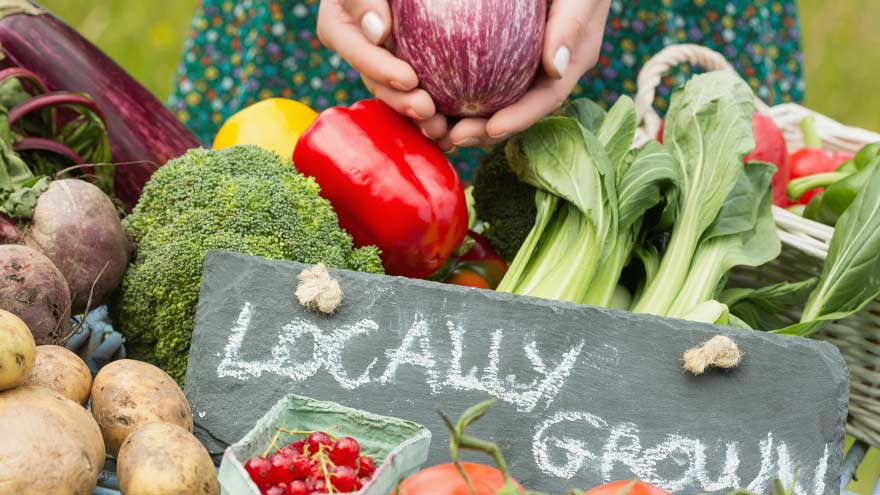Want to Eat for Heart Health? Consider a Plant-Based Diet
July 05, 2018

Maintaining a healthy weight has many benefits: among those is improved heart health. If you’re trying to eat right as well as become healthier, nutrition experts say you might want to consider a plant-based diet.
Plants provide air to breathe, beauty in our surroundings — and just may be a viable solution to your weight-loss goals.
According to the Centers for Disease Control and Prevention, more Americans than ever are overweight: Today, 7 in 10 Americans are classified as “obese” or “overweight,” and childhood obesity rates are growing rapidly. So experts encourage would-be dieters to look to plants as a source of daily inspiration.
“When you slowly and consistently expand your daily food choices to include more plant-based options, you will feel fuller, have more energy and lose weight,” says Lynice Anderson, director of Renown’s Healthy Heart Program.
But according to a recent study from the U.S. Centers for Disease Control and Prevention, just 1 in 10 adults eats enough vegetables and only 12 percent get the recommended amount of fruit daily. The same study notes that eating a diet rich in fruits and vegetables daily can help reduce the risk of many leading causes of illness and death, including heart disease, type 2 diabetes, some cancers and obesity.
Plant Foods = Foods with Fiber
One of the overwhelming health benefits of plant-based foods: fiber.
A study published in a recent issue of the Annals of Internal Medicine suggests that something as simple as aiming to eat 30 grams of fiber each day can help you lose weight, lower your blood pressure and improve your body’s response to insulin just as effectively as a more complicated diet.
Fiber contains no calories and comes in two forms: soluble, which dissolves in water, and insoluble, which doesn’t dissolve. Both are important for different reasons.
- The soluble fiber found in oats, fruits and beans forms a gel-like substance and helps to lower blood cholesterol and blood sugar levels.
- Insoluble fiber found in fruit skins, green beans and cauliflower goes through your intestines relatively intact providing “bulk” and improving bowel-related health problems.
“My fiber champion is chickpeas, also known as garbanzo beans,” says Renown Chef Chris Wyatt. “They are high in fiber, low in fat, low sodium and have zero cholesterol. Not only do they not contain any cholesterol, chickpeas work to remove cholesterol from your body. It’s a win-win.”
Snacks That Are Part of a Plant-Based Diet
Looking for the best sources of fiber from the plants and trees in your life? Here are the best options, according to this CDC fact sheet:
Fruits
- Raspberries, 1 cup: 8.0 grams of fiber
- Pear, with skin, 1 medium: 5.5 grams of fiber
- Apple, with skin, 1 medium: 4.4 grams of fiber
- Strawberries (halved), 1 1⁄4 cup: 3.8 grams of fiber
- Banana, 1 medium: 3.1 grams of fiber
- Orange, 1 medium: 3.1 grams of fiber
Veggies
- Artichoke, cooked, 1 medium: 10.3 grams of fiber
- Peas, cooked, 1 cup: 8.8 grams of fiber
- Broccoli, boiled, 1 cup: 5.1 grams of fiber
- Turnip greens, boiled, 1 cup: 5.0 grams of fiber
- Sweet corn, cooked, 1 cup: 4.2 grams of fiber
- Brussels sprouts, cooked, 1 cup: 4.1 grams of fiber
- Potato; with skin, baked, 1 medium: 2.9 grams of fiber
- Carrot, raw, 1 medium: 1.7 grams of fiber
Renown Health Improvement Programs | Appointments: 775-982-5073
To get an assessment of your dietary needs, schedule a consultation with one of Renown’s registered dietitians, who can help with: